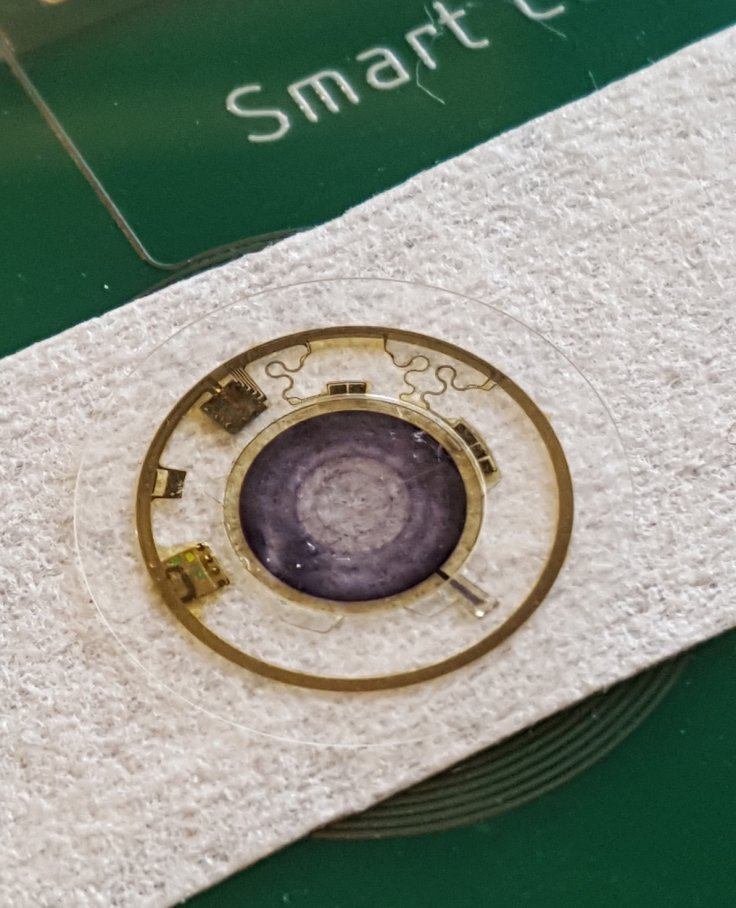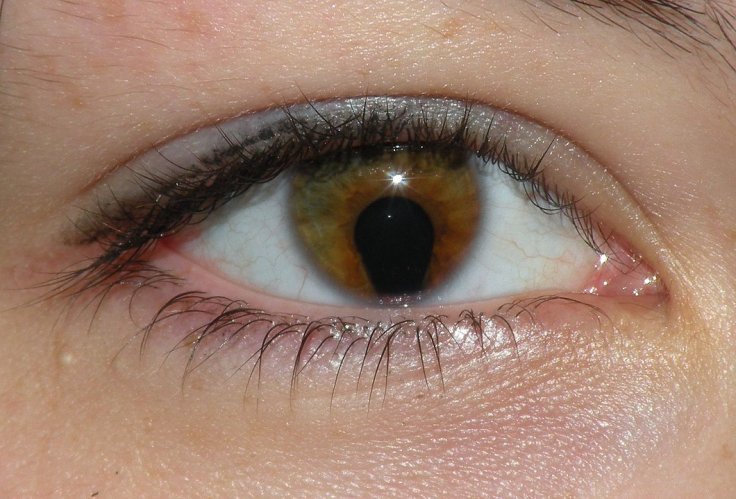Move over smartwatches and smart glasses, smart contact lenses are already here. Scientists in the Netherlands have developed a special contact lens that will correct your vision using an artificial iris that is tunable.
In a joint project by the researchers from Imec, a nanotechnology company, Ghent University and its partners in Madrid (Spain), the smart contact lens comes with an embedded iris. It has a built-in RF (Radio Frequency) antenna and a low powered LCD screen that can run the whole day. Like regular contact lenses, it will offer vision correction but also promises to increase visual sharpness.
The liquid crystal (LC) cell in the smart lens alters the level of light entering the eye in bright and low light conditions to help you see better. "The LC cell is automatically controlled by a novel application-specific integrated circuit designed at Imec," said Andrés Vásquez Quintero, an assistant professor at Ghent University.

"The ASIC includes light detectors to measure the amount of light present in the environment, blink detectors, and special LC drivers to automatically control the lens without the intervention of the user," he added.
Could Treat Variety of Eye Conditions
Apart from being a regular contact lens with additional features, it could be a blessing for ophthalmology as the artificial iris mimics the role of the iris in the human eye that controls light reaching the optical nerve.
In a research paper, published in the journal Nature, scientists said that the device could treat a variety of eye conditions including aniridia (that causes photophobia), coloboma (retinal disorder), keratoconus (thinning of the cornea) and dry eye syndrome. Quintero also said that as the lens adapts to ambient lighting automatically, it can help in chronic migraine and traumatic brain injuries.
Currently, the prototype of the smart lens is now being tested on patients to prove safety and efficacy. "Simulations of the device with real data from patients have already shown the efficacy of the device. The next steps include full validation of the devices with patients before commercialization efforts," Quintero told Digital Trends.

Application of Smart Lenses
There are, however, other products in development that want to replace the conventional contact lenses. Tech giant Samsung last year announced that it was developing smart contact lenses that would allow you to control your smartphone without even touching it. The South Korean company has already filed a patent in the U.S. but the technology that will help you see photos and videos directly to the eye is still years away from entering the market.
Mojo Vision is also working on a similar AR (augmented reality) lens to enable projecting content from a smartphone. It can also help in magnifying images for people with vision issues.
Leo Lens technology is developing a soft contact lens that will deliver glaucoma medicine directly to the eye, helping patients not to miss doses. Another company, SensiMed is focused on detecting glaucoma at an early stage. It is developing a lens with a built-in sensor that could measure changes in the cornea, thus alerting the user of glaucoma.
Researchers have also developed a new hydrogel contact lens that can protect people from a condition called corneal melting. By removing excess zinc from the cornea, the lens will help people who suffer the condition following autoimmune diseases, surgical procedures and chemical burns.









